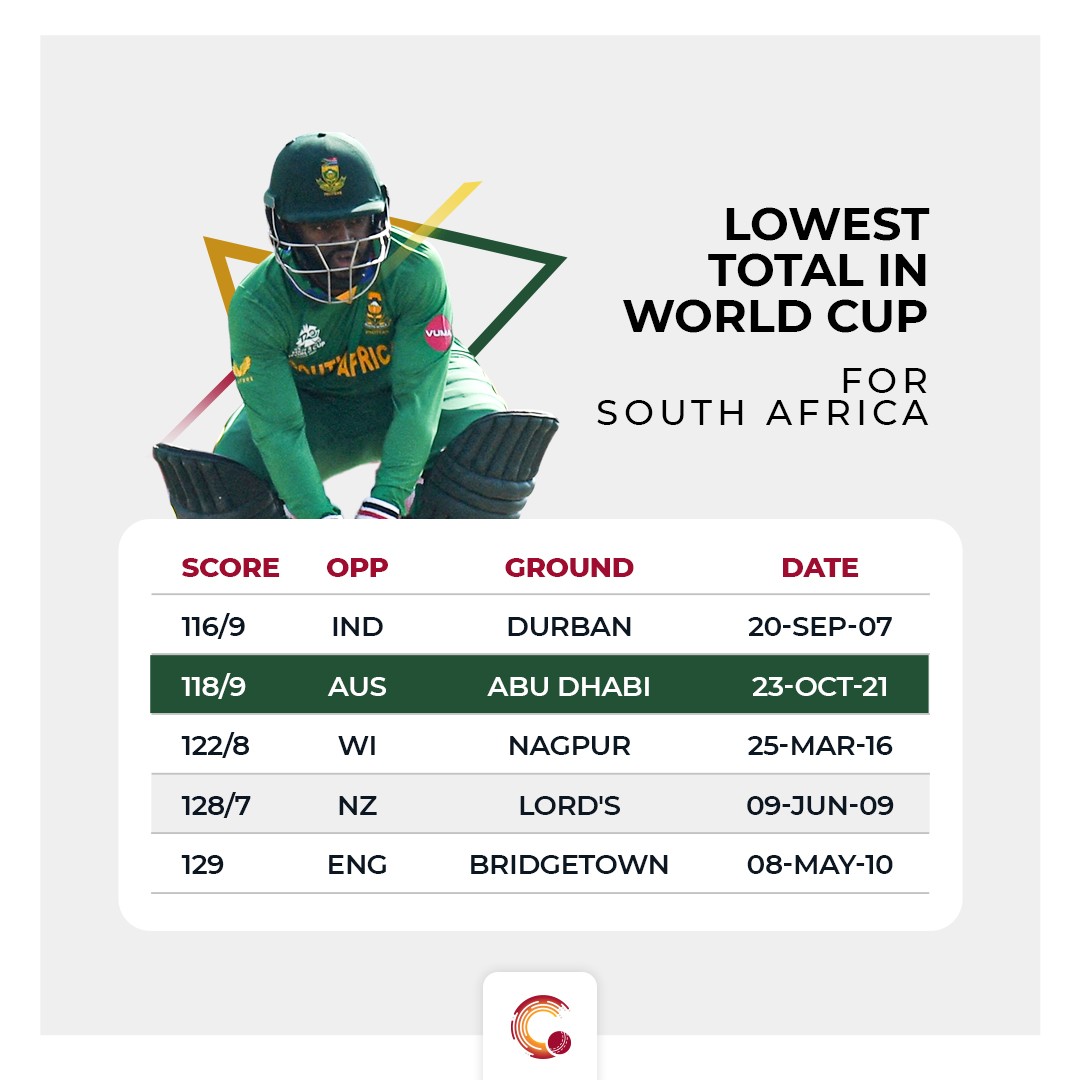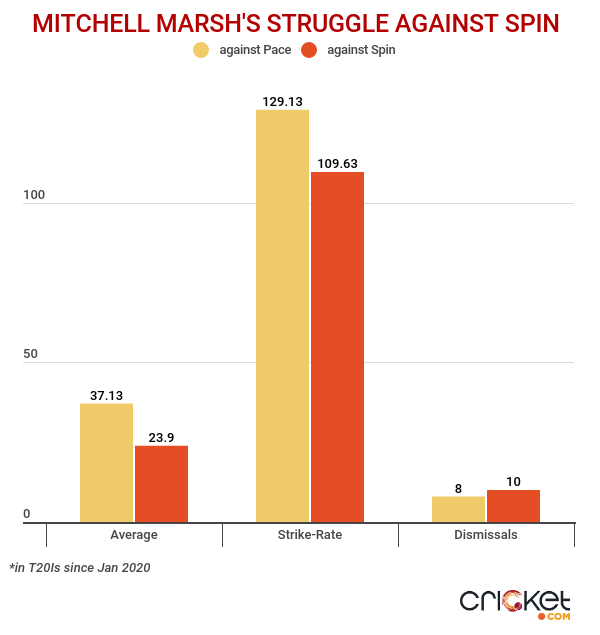 OPINION
OPINIONWith West Indies, England and South Africa in the same group, Australia would have had a bit of jitters going into the first clash of the Super 12 stage. However, the confidence from their win over New Zealand and the warm-up clash against India, gave Australia the much-needed preparation to iron out the flaws.
It is true that Australia always turn out in the world events but this time, they turned an easy chase into a nail-biter, which showed a flaw of plenty. On the other hand, for South Africa, this clash was a real eye-opener, on the prospect of putting up a score on the board, at the expense of the toss.
For Australia, Josh Hazlewood 2.0 surely would come as the most positive of things, with them having failed in the past to nail the third-seamer spot, having tried out several players, including Kane Richardson. But this win will give them plenty of reasons to smile. What else did we learn?
Australia’s powerplay perfection
With Australia lacking the fifth bowling option, in Ashton Agar, they had to be creative with their match-ups, which was the order of play in Abu Dhabi. One over after Mitchell Starc conceded 11 runs, Aaron Finch made the bold move of handing the ball to Glenn Maxwell, in the powerplay in conditions where pacers were at a far-better advantage.

While it looked purely like a match-up against the left-handed Quinton de Kock, who only strikes at 111 against the off-spinners. In the recent IPL, it was a visible ploy from sides to bowl the off-spinners upfront, which would reduce de Kock’s otherwise impressive powerplay numbers. Maxwell knocked over Bavuma, which was not the sort of start the Proteas would have hoped for.
Finch’s second move – to bring Josh Hazlewood – from the other end, severely made the South African batting order crumble, with the in-form seamer picking up two of Proteas’ key players, in Rassie van der Dussen and de Kock, as South Africa could only add 29 runs in the powerplay, a key phase of play in the Middle-East.
South Africa punished for lack of intent
Barring the 34-run partnership between David Miller and Aiden Markram, none of the other batters etched any sort of influential partnerships between them, costing the Proteas big time. 13, 3, 7, 23, 34, 2, 15, 17 – were all the partnerships that South African batters had during the entire first innings against Australia.
That combined with South Africa’s lack of intent against spin, was a crucial factor for how they had to settle for 118 at the end, having scored 11 runs in the first over. Coming into the tournament, the Proteas had the second-best record against spinners since 2020, averaging 27.2, at a strike-rate of 125.2. 
The lack of intent is what came to haunt them against Australia, with them just scoring 45 runs in eight overs off spinner’s bowling in the clash. In the first innings, the Proteas batted 56 dot-balls, almost ten overs where they didn’t score a single run. Going into the clashes later, Bavuma’s side would want to reduce the number of dot balls, with the singles and doubles. To add insult to the injury, Australia’s fifth bowler, Maxwell only went for 24 runs, picking up one wicket.
Should Australia continue to Marsh at No.3?
Australia’s ploy with Mitchell Marsh at No.3 was indeed a move in the positive direction but given that the conditions in the Middle-East are more likely to be slow and low, does it make total sense? While he has only got out twice in the powerplay, most of the games that he has aced have been against pace on good batting surfaces, striking a boundary every 4.6 deliveries. 
However, with most of the sides being aware of his weakness – spin bowling - which they have used extensively to trap him. The right-hander against spin, averages 23.9, at a strike-rate of 109.6, with 10 dismissals in the last 18 innings, that’s 55% of his dismissals. Unlike pace, against spin, Marsh only strikes a boundary every 8.7 deliveries.
Or should Australia go back to their age-old tradition of batting Steve Smith at No.3 and use Marsh as a floater, depending on the start they get? The alarming signs are too early but with a pattern as evident as this, the Kangaroos should utilise their resources to perfection, only batting the players according to the starts and match-ups.
South Africa's success might boil down to the all-rounder spot
South Africa nearly have all the bases covered with the ball: sheer pace, deadly accuracy, quality spin and proper economists barring one. The one spot that South Africa have struggled in the recent past to nail down is the all-rounder spot. Today, it was on display yet again, when Dwaine Pretorius was handed a spot in the playing XI. When put under the spot against Adam Zampa, Pretorius walked back for a two-ball one, edging a wide delivery to the wicketkeeper.
With the ball, Temba Bavuma trusted the all-rounder to close out the job, one of the toughest tasks in T20 cricket and it didn’t work out. In hindsight, it was a bad move but Pretorius has bowled exceedingly well in the last phase of the innings, where he averages 11.6, at an economy rate of 7.6, picking up five wickets. On the night, however, the all-rounder gave away 17 runs in his last two overs. There might be some obvious flaws in this Proteas setup but this close loss will give Bavuma a lot of confidence about their bowling going into the immediate future.